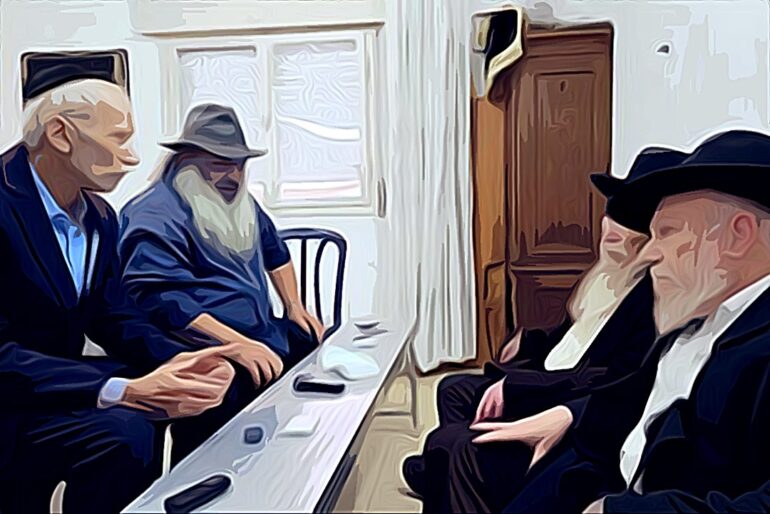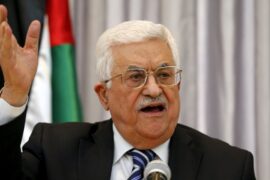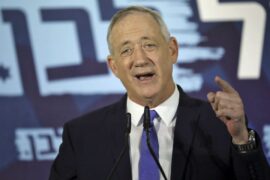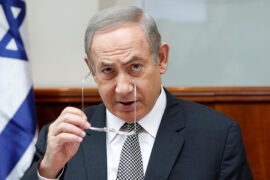Former Labor party lawmaker Omer Bar-Lev appeared at a protest last month in front of Rav Gershon Edelstein’s home in Bnei Brak.
Rav Edelstein, who left our world last week at the age of 100, had been considered the leader of Israel’s “Lithuanian” Ḥaredi community.
Ḥaredi coalition members Moshe Gafni (UTJ) and Aryeh Deri (Shas) responded to Bar-Lev’s participation in the demonstration by announcing a boycott of Angel Bakery, where Bar-Lev had recently been appointed to chair the board of directors.
The situation quickly escalated. Some figures declared a counter-boycott – a “buycott” in support of Bar-Lev and Angel Bakery. At the same time, Gafni threatened to reconsider Angel’s kashrut status, which would expand the boycott to the majority of Israelis who consciously observe Jewish dietary laws.
The media declared victory for the buycott when Angel Bakery’s stock price rose 1.12% in the first weeks of the drama. We were told that the Ḥaredi activists had overplayed their hand and angered the “secular uprising” proclaimed by Anshel Pfeffer of Haaretz in March.
Preparations were surely underway for a Roman-style triumph down Kaplan Street.
Thus, it was a great surprise when Bar-Lev appeared before the grieving sons of the now-deceased Rav Edelstein to issue a public apology. Ḥaredi leaders declared victory and the end of the boycott, while the anti-Ḥaredi journalists who had weeks earlier declared victory were forced to reexamine their analyses of the situation.
How did the media get the Angel Bakery boycott so wrong? There are four reasons.
The first two are observable factors in the Ḥaredi community that the media had predicted would weaken it but have instead strengthened it: technological modernization and a growing Jewish national consciousness.
Anshell Pfeffer, the false prophet of the “secular uprising,” was the first to point to the nature of the boycott, which was primarily organized on Twitter, as an early sign of a Ḥaredi defeat. The organization of community initiatives on Twitter for a community that for so long has been defined by the maxim “all that is new is forbidden” shows a disconnect between modern Ḥaredi society and its grounding values, an internal alienation, a weakness within that would prevent the initiative from achieving success.
But the exact opposite occurred. The use of modern technology and social media by the Ḥaredi community only increased the effectiveness of their boycott. Ḥaredi organizers did not crumble under technology. Rather they adapted and utilized it to advance their own objectives.
The increased national consciousness within the Ḥaredi world and its slow integration into mainstream Israeli society have long been predicted as a weakening factor within the community. Surely, Ḥaredi particularism would dissolve into the melting pot of Israeli national identity. But increased national consciousness and moderate integration have instead contextualized the Ḥaredi struggle within the greater tribal struggle taking place in our society. This contextualization has added to the Ḥaredi resolve in their particularist matters, including that of the Angel boycott.
The third reason for the media prediction was an overestimation of the “secular uprising.” While the buycott initially helped Angel’s stock rise, its proponents quickly lost interest. By the time Bar-Lev apologized, Angel Bakery had quietly sagged to a 3.5% net loss from its original stock price. The “secular uprising” was shown to lack the organization and resolve of the Ḥaredi community.
The final reason why the media believed the boycott would fail is because they did not want to believe it would succeed.
The tribe of Yosef is in denial. They are in denial of the election results, they are in denial of the erosion of their social power, and they are in denial of the political ascension of those more deeply connected to Jewish identity, history, and destiny.
As Israel’s socio-cultural trajectory reveals “first Israel” – the country’s westernized ruling class that Bar-Lev so perfectly represents – to be rapidly shrinking in favor of “second Israel” (Ḥaredi, Mizraḥi, Revisionist Zionists, and national-religious Jews that all experienced marginalization at the hands of “first Israel” since even before the state’s establishment).
Israel’s elites and the journalists who champion their cause have not yet accepted that the Ḥaredi community, the more ideologically driven national-religious camp, and other sectors that comprise “second Israel,” are increasing in economic, cultural, and political power at the expense of “first Israel.”
This, more than anything else, is what frightens Israel’s ruling class and has been driving anti-government hysteria since November’s election results.






Why is the tribe of Yosef in denial, from all the factors brought in prominence since the election?
My reason for asking is that I am challenging the status quo of the existence of Moschia ben Yosef? According to the Vilna Gaon, Moschia ben Yosef is to prepare the pathway for Moschia ben David. Apparently in the Lubavitcher movement someone has already been designated, but to my knowledge, there has been any inroads that I am aware of?
All this to claim I have taken personally that status, but the Orthodox establishment will not come to terms with my request of acknowledgment or debate.
Yosef, Yaakov, Avrohom ben Avrohom